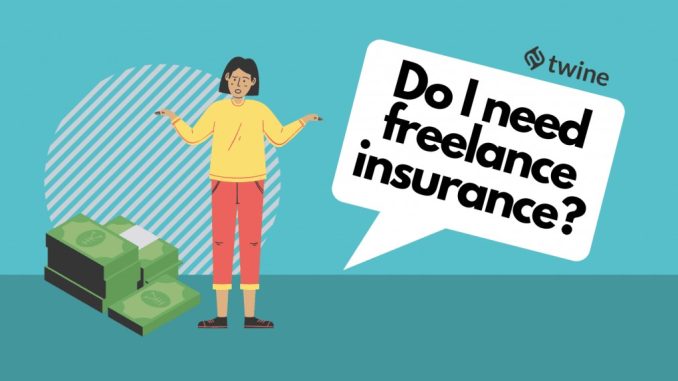
Freelancing has become increasingly attractive in today’s economy, offering flexibility, autonomy, and the freedom to chart one’s own professional path. Yet with this independence comes responsibility. Unlike employees who typically rely on their organizations for benefits and protections, freelancers must navigate a complex landscape of risks on their own. One often-overlooked aspect of this self-sufficiency is insurance. While it may feel like an unnecessary expense in the lean early days of building a freelance business, the right insurance policies can prove invaluable—sometimes even business-saving—when unexpected challenges arise.
At its core, insurance for freelancers functions much like insurance in any other context: it transfers risk from the individual to the insurer in exchange for a premium. But the specific nature of freelance work introduces unique exposures. A graphic designer who accidentally overwrites a client’s original files, a consultant whose advice leads to a costly business decision, or a writer whose laptop is stolen on deadline all face potential financial and reputational fallout. Without appropriate coverage, a single misstep or unfortunate event can wipe out months’ worth of income.
Professional liability insurance—often called errors and omissions insurance—is a cornerstone for many independent service providers. Unlike general liability coverage, which focuses on physical injuries or property damage, professional liability protects against claims of negligence, errors, or failure to deliver agreed-upon services. Imagine an architect who drafts plans for a small café, only to have the owner claim that construction costs skyrocketed due to a miscalculation in the blueprints. If litigation follows, professional liability insurance can cover legal fees and settlements, sparing the freelancer from personally shouldering a potentially crippling bill.
General liability insurance also deserves consideration, especially for freelancers who meet clients in person or maintain a home office that visitors may enter. This policy guards against accidents such as a client tripping over a loose carpet and sustaining an injury. Even virtual workers can benefit if they invite clients or colleagues into their workspace for occasional meetings. The peace of mind that comes from knowing a slip-and-fall won’t trigger a lawsuit—even when the odds seem remote—can make a tangible difference in day-to-day comfort.
Freelancers often overlook health and disability insurance, perhaps assuming these are concerns for traditional full-time employees. However, access to quality healthcare and income protection in case of illness or injury is just as critical—if not more so—when there is no employer safety net. A serious medical event can rapidly deplete savings, and without disability coverage, any extended absence from work translates directly into lost earnings. Short-term policies can bridge minor gaps, while long-term disability insurance provides a lifeline if recovery takes months or longer.
For those whose work depends on specialized equipment—photographers, videographers, and tech consultants, to name a few—equipment insurance can safeguard against theft, accidental damage, and even loss during travel. A photographer losing a camera on assignment or a developer spilling coffee on a laptop can find themselves unable to meet deadlines and unwilling to front the cost of repairs or replacements. Equipment insurance typically offers fast-track claims processes to get freelancers back to work, reinforcing reliability in the eyes of clients.
In an increasingly digital world, cyber liability insurance has risen in importance. Freelancers handling sensitive client data—financial records, personal information, or proprietary business details—face risks of hacking, data breaches, and accidental disclosures. The aftermath of a cyber incident can include notification costs, forensic investigations, and even regulatory fines, depending on local data protection laws. Cyber liability insurance can cover these expenses, as well as potential legal claims from affected parties, allowing the freelancer to address vulnerabilities without sacrificing financial stability.
While the variety of insurance options may seem daunting, freelancers don’t necessarily need every policy under the sun. The right mix depends on factors such as the nature of the work, the scale of operations, and individual risk tolerance. A freelance writer crafting op-eds from home might prioritize professional liability and health coverage, whereas an events planner could lean more heavily on general liability and equipment protection. Starting with a consultation from an insurance broker familiar with independent professionals can clarify which policies address the most pressing exposures.
Costs for freelance insurance can vary widely based on coverage limits, deductibles, and the freelancer’s revenue. For many, premiums represent a small fraction of billable hours—and a fraction of the potential costs of an uninsured claim. Moreover, in many jurisdictions, these insurance expenses are tax-deductible business costs, helping to offset their impact on the bottom line. Careful budgeting for insurance, much like planning for taxes or retirement contributions, is an integral part of building a sustainable freelance practice.
Beyond risk mitigation, carrying appropriate insurance signals professionalism and reliability to clients. Small businesses and large corporations alike often ask independent contractors to furnish proof of coverage before signing contracts. Having policies in place not only streamlines the onboarding process but also communicates to clients that the freelancer takes their work—and their shared obligations—seriously. This competitive edge can translate into more consistent engagements and, in some cases, higher rates.
Ultimately, the question “Do freelancers need insurance?” is less about whether it is mandatory and more about whether one values stability in the face of uncertainty. Freelancers build their careers on adaptability and self-reliance, and part of that independence is choosing to protect their livelihoods proactively. Insurance is not a panacea—freelancers must still manage cash flow, stay current with industry standards, and maintain strong client relationships—but it is a critical component of prudent business planning. By balancing risk with the right coverage, freelancers can focus on what they do best—creative problem-solving and delivering exceptional service—free from the lingering fear of a single incident derailing their professional journey.
Leave a Reply